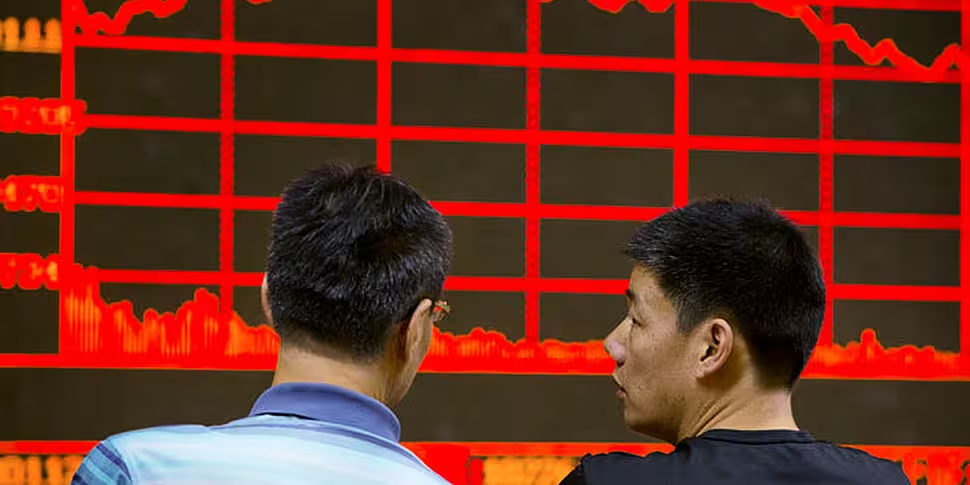China has cut core interest rates in a renewed bid to stimulate its slowing economy and help arrest a sell-off of Chinese stocks.
It is the fifth time in nine months that the People's Bank of China (PBoC) - the country's central bank - has slashed borrowing costs and loan rates.
The move follows a crash in values on domestic Chinese stock markets.
The collapse in investor confidence spilled over onto world stock indices, resulting in two days of sharp selling though values in Europe have recovered well on Tuesday.
That rally was extended in Europe when news broke of the PBoC's intervention.
The central bank said the benchmark rate for a one-year loan would be cut by 0.25 percentage point to 4.6% and the one-year rate for deposits would fall by a similar margin to 1.75%.
It also increased the amount of money available for lending by reducing the minimum reserves banks are required to hold by 0.5%.
The moves had been anticipated by financial analysts after exports, manufacturing and other economic indicators weakened by larger margins than expected in the latest data round.
It has deepened fears that the slowdown in the world's second-largest economy is more entrenched than official statistics suggest.
China's economic growth has been a strong driver of recovery in the west since the financial crisis.
Its decade-long boom meant that commodities such as oil and other raw materials were in strong demand.
But that growth was largely built on debt and action to slow the credit boom has put the brakes on output, leaving GDP growth at an annual rate of around 7%.
The slowdown has dented confidence in Chinese stocks - shares which are largely held by the country's middle classes.
"A bit of panic"
Authorities have since intervened on numerous occasions to try and stimulate economic activity.
The last major measure - two weeks ago - was a devaluation of the yuan but it has also tried to arrest the stock market routs through extraordinary means, such as ordering state institutions to buy shares and banning short-selling.
While the rate cuts were expected, some analysts have suggested the Chinese were slow to react to the market sell-offs of recent days.
Andrew Polk, economist at the Conference Board in Beijing, said: "Frankly this shows a bit of panic in my mind".
"This is a big-bang move," he said. "It's meant to address some real issues and also prevailing market sentiment over the past two days".
The Shanghai Composite lost 8.5% on Monday and 7.6% on Tuesday, falls which have tipped the index into negative territory for 2015 to date.









